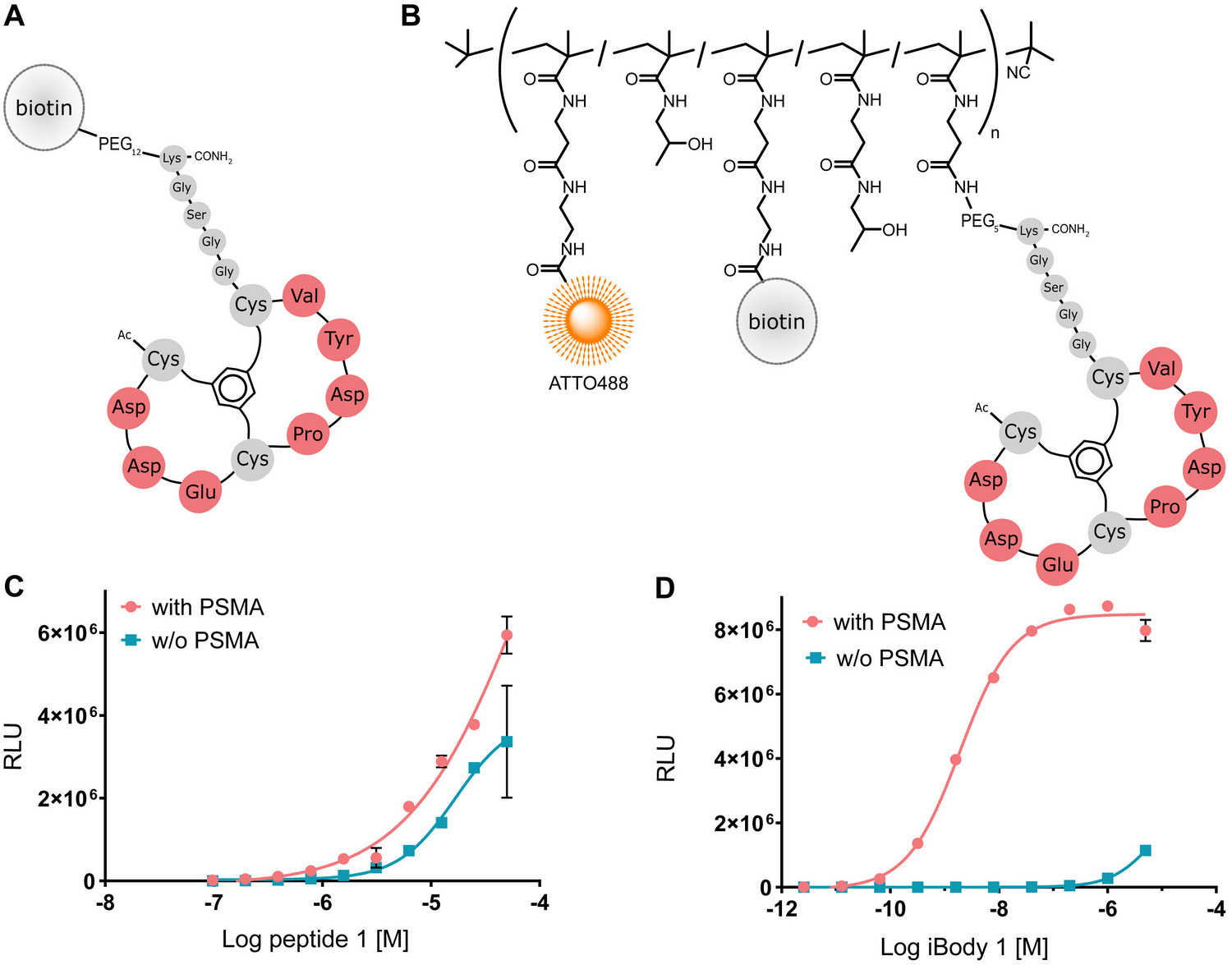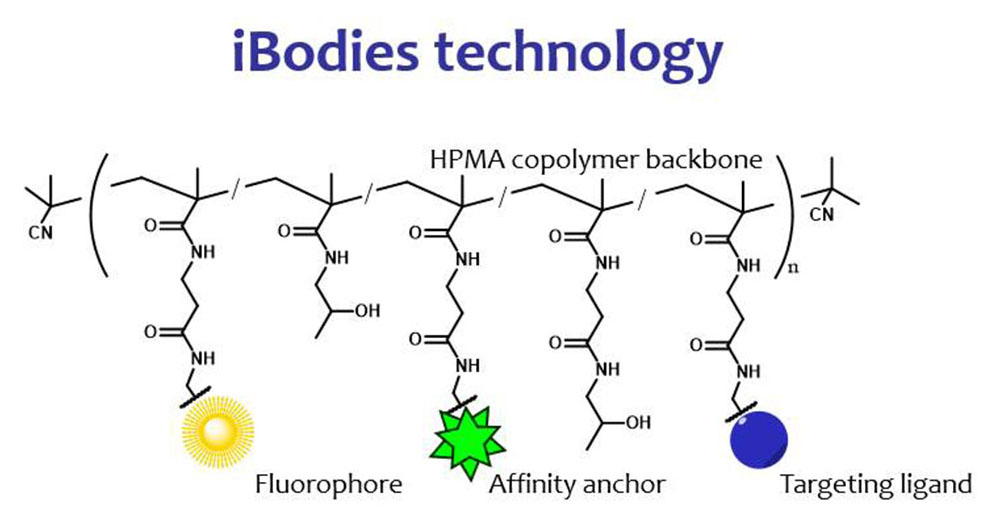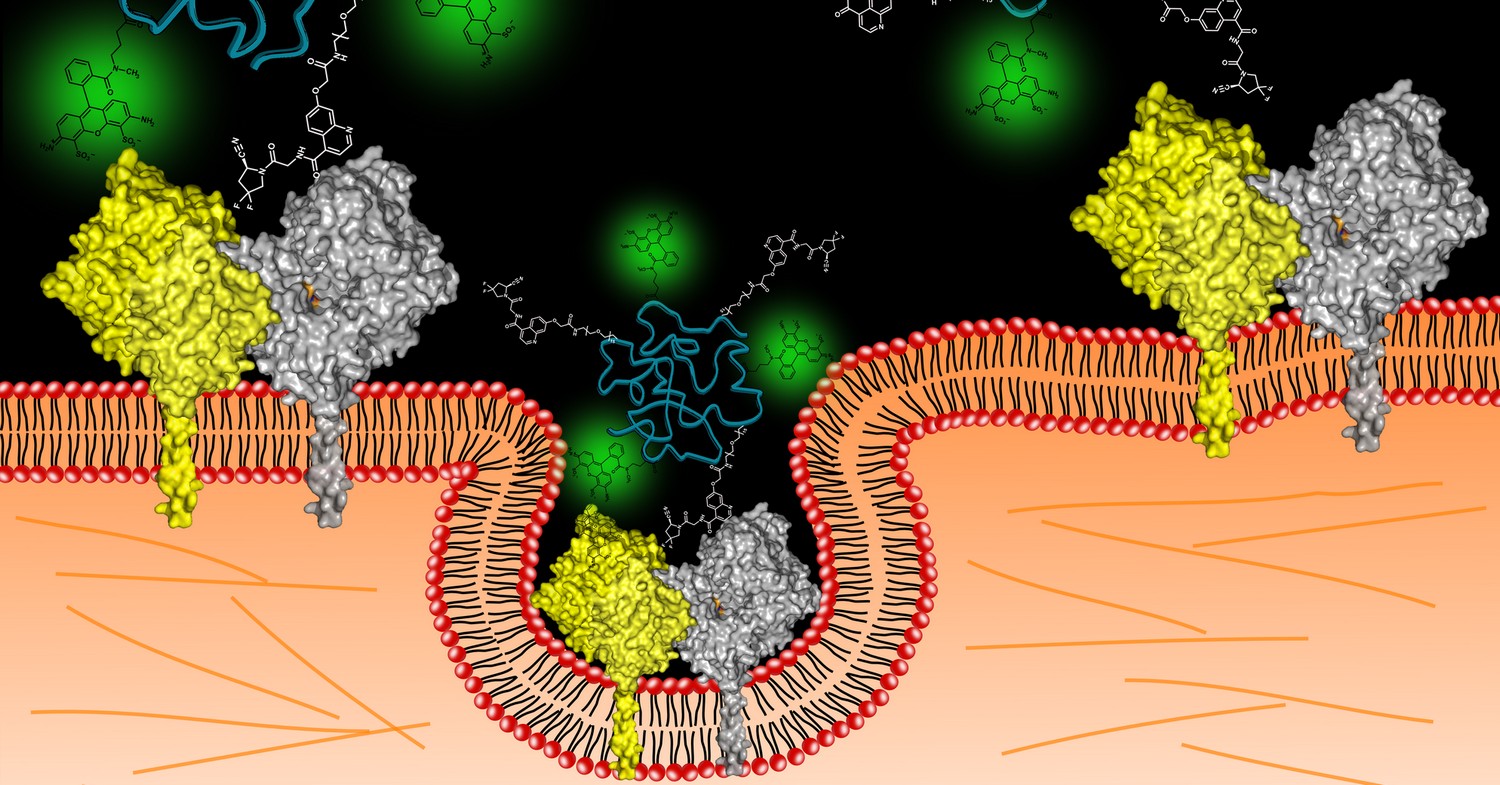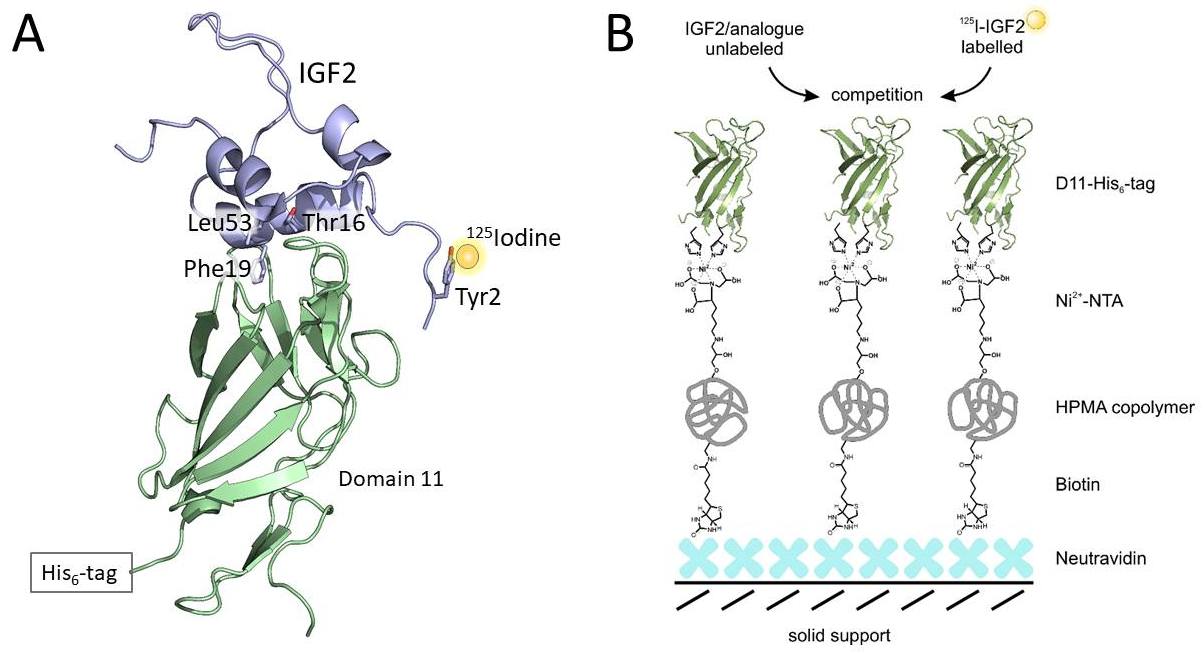
Novel ligands of pharmacologically relevant targets are often identified by an in vitro selection method such as phage-display. However, they often suffer from unfavorable properties like low affinity or solubility. This was the case of a new bicyclic peptide binder of prostate-specific membrane antigen overexpressed in prostate cancer. To solve this problem, the interdisciplinary team led by Jan Konvalinka and Pavel Šácha from IOCB Prague in collaboration with researchers from the Institute of Macromolecular Chemistry of the CAS combined the small peptide ligand with iBody (a biocompatible water-soluble copolymer carrier developed earlier in their laboratory) to create synthetic antibody mimetics.
Such molecules exhibited a nearly three-order-of-magnitude increase in binding to a prostate cancer antigen over the peptide ligand alone. In addition, the antibody mimetic can distinguish between different conformations of the target antigen. Combining a small molecule with unfavorable properties with a large hydrophilic copolymer-based scaffold offers a new approach to translate hits from in vitro selection methods to biochemical applications.
Their paper, with Kristýna Blažková as the first author, was published in the Journal of Biological Chemistry.

Read the paper:
- Blažková, K.; Beranová, J.; Hradilek, M.; Kostka, L.; Šubr, T.; Etrych, T.; Šácha P.; Konvalinka, J. The development of a high-affinity conformation-sensitive antibody mimetic using a biocompatible copolymer carrier (iBody), J. Biol. Chem. 2021, 297, 5, 101342. https://doi.org/10.1016/j.jbc.2021.101342






